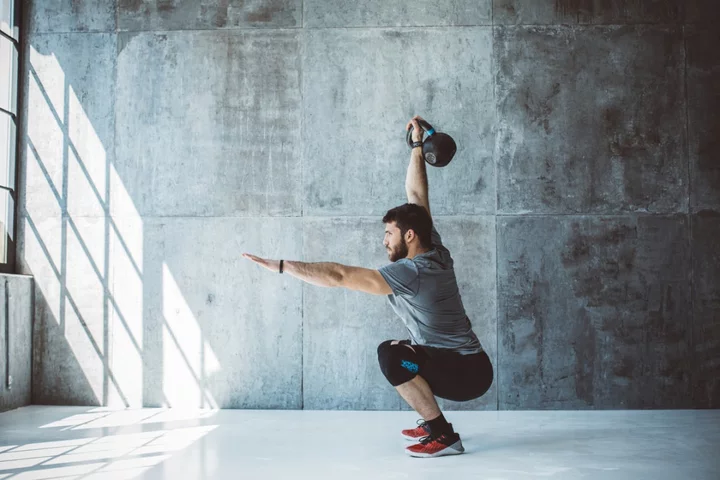
Sports culture is ‘intimidating’ and putting people off working out, study finds
Intimidating sports culture is putting millions off working out – as many are feeling alienated by the exercise industry. A poll of 2,000 adults who don’t exercise found 68 per cent feel too embarrassed to go to the gym because they don’t fit the mould of the “typical” gym goer. More than three-quarters (78 per cent) don’t find sports adverts motivating and 33 per cent say adverts actually put them off working out. However, 55 per cent would be more likely to exercise if they saw everyday people in sports adverts. And 20 per cent would be more inspired to do something active if there were more realistic expectations set by the industry. A further 29 per cent say sports brands aren’t relatable to them, and a quarter think exercise culture is intimidating. While 49 per cent wish they had more confidence to exercise. The research was commissioned by ASICS as part of its ‘New Personal Best’ campaign, which is calling out performance-obsessed exercise culture in partnership with mental health charity Mind. Gary Raucher, European vice president for the sportswear brand, said: “The sports industry has been telling us for years that the only thing that matters is a faster time, a longer distance, a higher score, and more reps. “Although it’s aimed at motivating people, our research shows it’s having the reverse effect and instead creates an intimidating culture that’s putting people off exercise – something we’re committed to change.” As part of the research, survey respondents were shown a series of marketing images from sportswear and athletic brands and asked to comment on how the pictures made them feel. Just over one in 10 (12 per cent) said the images made them feel ‘inferior’, 13 per cent felt intimidated and for seven per cent, the images even made them feel depressed. It was found 16 per cent typically come across these types of images on social media, with 42 per cent admitting seeing boastful exercise posts makes them feel like a failure – even before they’ve started exercising. Hayley Jarvis, head of physical activity at Mind, added: “For people who don’t exercise, taking that first step can be daunting, especially if they’re also experiencing a mental health problem. “When you add the pressure of performance so often seen in sports marketing or on social media, for some it can feel impossible to get started as they don’t feel like they’re ‘good enough’. “Getting active can play a vital role in helping us stay and live well with mental health problems.” The survey, which was conducted via OnePoll.com, also found 23 per cent of non-exercisers feel too embarrassed to start now, and nearly one in five (18 per cent) worry people would judge them as they are too unfit. Over three quarters (77 per cent) admitted they are aware of the mental health benefits of exercise. But despite 61 per cent saying they have either personally experienced a mental health problem or know someone who has, it is still not motivation enough to get them moving. Mental health activist and TV personality Dr Alex George, who is supporting the ASICS campaign, said: “As someone who is passionate about the benefits of exercise on mental health, it’s upsetting but unsurprising that people feel excluded and alienated by the sports industry. “I too have felt intimidated and insecure after comparing my performance and results to others. “People need to know that regardless of the type of exercise they do, or the times or distances they achieve, any movement benefits mental health and is something that should be celebrated.” The ‘New Personal Best’ campaign features everyday people and is encouraging them to share their own ‘personal best’ images on social media using the hashtag #NewPersonalBest on World Mental Health Day, 10th October. One of which is Tom Durnin, whose inspirational story caught the sports brand’s attention when he finished in last place at the London Marathon 2023. He said: “For me, it was all about crossing that finish line no matter how long it took me. I run purely because it makes me feel good, I don’t worry about my time or being the slowest. “I never thought I’d ever be the face of a sports campaign but I’m honoured to be partnering with ASICS to encourage more people to move for their mental health. “If my story can inspire at least one person to take the first step that’s all I could ask for.” Read More Brits reveal advice they would give their younger selves - including investing in property Girls in UK have much lower confidence than male peers, study finds Average person completes 90 online tasks a day Israel-Hamas conflict: How to talk to teenagers about distressing news stories How to get rid of bedbugs: Signs and symptoms amid threat of UK invasion How to support someone coming out in their 30s and beyond
2023-10-11 16:59
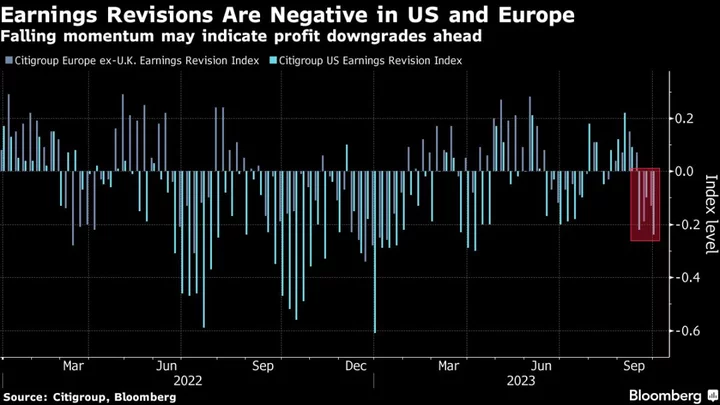
Stock Market Can’t Ignore Impact of Rates on Earnings This Season
Stock markets that have refused to buckle under the highest yields since 2007 face a new test. Third-quarter
2023-10-11 15:59
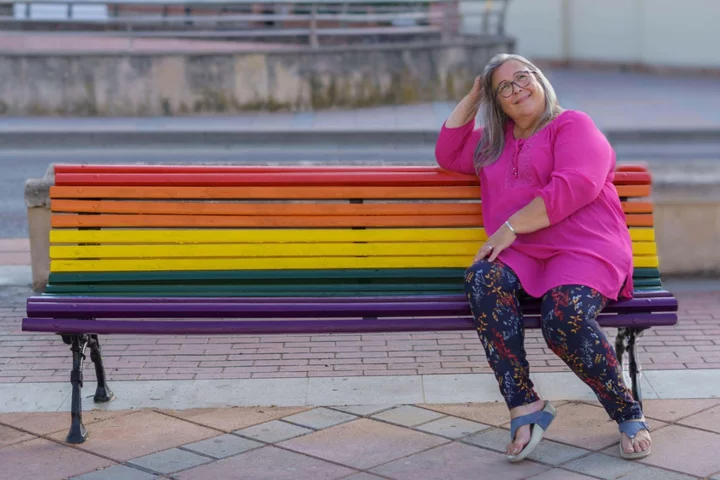
How to support someone coming out in their 30s and beyond
Coming out can be hard at any age, but by the time you’re well into adulthood it may feel terrifying, and be completely life-changing. Many people who come out in their thirties and onwards may have wanted to for a long time but not felt safe enough to do so. As October 11 marks National Coming Out Day, it’s important to reflect on how, if and when people can share their authentic selves. “I wasn’t raised in a time when it felt safe to express attraction to women,” says author and creative mentor Fiona Fletcher Reid, who came out last year at the age of 35. “I wasn’t sure about my sexuality until I had psychosexual therapy and was able to explore all the layers of internalised homophobia and repression that I had accumulated over my 35 years,” she says. So, how you can support someone who is going through it? Don’t assume everyone is the same Not every person’s coming out looks the same, and some LGBTQ+ experiences are not universal. “Coming out is a personal experience and because it is often physically and emotionally dangerous to be openly queer, lots of people never feel able to be open,” says Fletcher Reid, now 36. “Some people might feel free to come out once they have ended a particular relationship, or after meeting people who they feel safe around. “For others, like me, it’s that we don’t consciously acknowledge our sexuality until we are a lot older and have the confidence to work through the emotional implications and real-life consequences that come with that,” The writer, from Glasgow, was going through a divorce at the time with a man she’d been with since the age of 17. “During therapy, I talked a lot about the pain I was experiencing during intercourse as well as my general anxiety around sex. It wasn’t until I’d built up a trusting relationship with my therapist that I felt able to discuss the fact that I thought I might be gay and I did not expect that to come up, so I was just as surprised as everyone else when I came out.” Don’t question their authenticity Validate what the person who has come out is saying. “Don’t say, ‘Are you sure?’ because you can rest assured that the person coming out to you has thought long and hard about this,” says Fletcher Reid. “Casting self-doubt on someone when they have opened up a vulnerable part of themselves to you is hurtful.” Don’t question them about their sex life It’s no one else’s business. “Please don’t ask about whether they have been intimate with anyone, or any other sort of suggestion that they need to ‘prove’ their sexuality to you,” she stresses. Consider what they feel and accept that it is a big deal They are probably feeling “a mix of emotions, including excited, happy, empowered and scared for their safety”, says Fletcher Reid. “Sadly coming out can still cause huge ruptures in relationships so be aware that this is a huge moment for them and comes with real consequences. “Dismissing their experience as ‘not a big deal’ because you think it’s ‘normal to be gay’ now is a dangerous and false narrative.” It may sound simple, but just listening and supporting them is vital. “Be there to listen and try to celebrate all the new things that they are exploring as they come out, whether that’s dating, meeting new people or finding ways to experiment with their identity through fashion,” says Fletcher Reid. “Repeat often that you love and care for them and that you accept this evolution of them, that you are happy to see them happy.” Suggest they find community “Encourage them to talk to other people who have been through similar experiences if you can,” she says. “As much as friends and family want to understand what they are going through, it is far more validating to talk to someone else who has come out later in life and understands the emotional intricacies of the experience. “They can also hopefully show them that there are good times ahead.” Thank them for sharing with you “It is a privilege that someone trusts you with coming out, especially later in life. Tell them that you are honoured to have been trusted with this information, and reassure them that you will keep it private until they are ready to tell other people,” Fletcher Reid suggests. “The best reactions that I had from people were seeing their joy that I had discovered this important part of myself, and that had a huge impact on my ability to feel hopeful amidst the pain caused by my divorce. “Allowing them to feel conflicted and guilty and offering reassurance that they have the right to be themselves will make them feel so much happier.” Read More Israel-Hamas conflict: How to talk to teenagers about distressing news stories Autumn décor ideas for a seasonal refresh Why you shouldn’t tidy your garden too much in autumn World Mental Health Day: 5 ways to beat anxiety and change your life Alternative veg to grow for next season How to spot if your child is struggling with their mental health – and what to do next
2023-10-11 13:49

Airlines Step Up Tel Aviv Flight Suspensions as War Rages
Tel Aviv is rapidly losing air links, with regional powerhouse Turkish Airlines joining a growing list of international
2023-10-11 12:48

The Best Prime Day Gaming Hardware Deals
There are many pains that come with being a gamer, but one of the worst
2023-10-11 10:27

Traders Spurn Thailand’s $15 Billion Handout in Test for Srettha
Pressure is growing from financial markets for Thailand’s premier to change course on his blockbuster spending plan as
2023-10-11 08:50

Harvard Ignites Backlash Over Delayed Response to Hamas Attack on Israel
The letter was signed by more than 30 student groups at Harvard after the world woke to images
2023-10-11 06:25
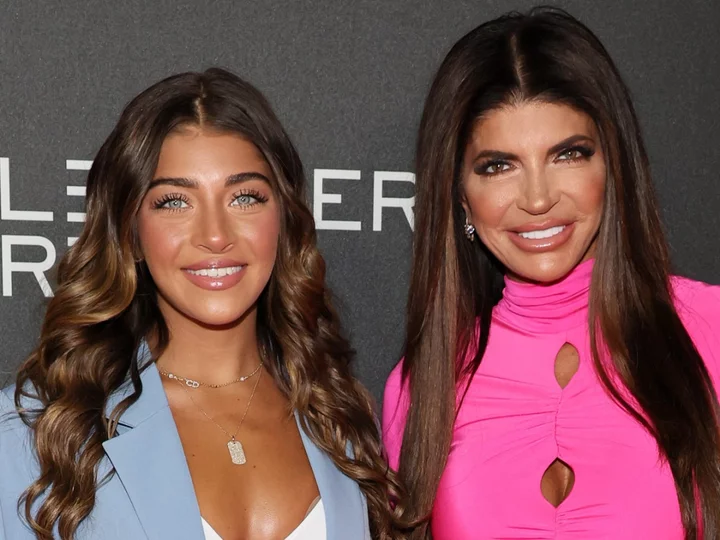
Teresa Giudice and daughters receive backlash for their partnership with Shein
Teresa Giudice and her three daughters - Gia, 22, Milania, 17, and Audriana, 14 - are being ridiculed for partnering with the controversial fast fashion brand, Shein. In an advertisement posted on Instagram, the Real Housewives of New Jersey star was filmed walking in on a holiday-themed party decorated with gold confetti, sweet treats, and bedazzled formal wear. The 51-year-old mother of four joined her daughters’ celebration in a skin-tight black dress, sipping champagne and reveling in the excitement. The collection - titled “Giudice Girls x Shein” - includes two-piece sets, lavish dresses, and frilly pajamas. According to the brand, the collaboration will consist of 100 pieces offered in sizes up to 5XL. “We are SO excited to finally announce our partnership with @sheinofficial to curate the ultimate pre-holiday collection, #SHEINxGiudiceGirls,” Giudice captioned her post. “All of the pieces are a reflection of us, lots of glamorous, fun, and chic styles that are perfect for everyone! We even made sure to include comfy and luxe sleepwear for your next Girls Night In,” she continued. Fans flocked to Giudice’s Instagram, where they commented their opinion of the family’s partnership. While some were pleased by the ad, others were upset that the girls decided to work with Shein after the brand had been slammed for its alleged poor treatment of workers and independent designers. “A SHEIN ad? How embarrassing! I guess we have confirmation that your bags and designer clothes are fakes as well as those Cartier bracelets from Christmas,” one individual wrote. Another said: “Why Shein tho? One of if not the most problematic line of clothes there is. I guess the shoe fits.” “Well this fits. Teresa partnering with one of the most unethical brands in the world. You know what they say, birds of a feather. But, love, love, love,” someone else proclaimed. “Terrible partnership as they steal other designers creations on a daily basis. Do check numerous lawsuits for stealing (intellectual property). Cheap disposable fashions,” another critic noted. One Instagram user agreed: “Ew partnering with Shein is gross and fast fashion is passé. Wealth hoarding at the expensive of the planet is not a good look and will not age well.” The clothing giant faced backlash earlier this summer when a group of influencers were invited on a “brand trip” to Shein’s factory in Guangzhou, China. The intention was to convince the tastemakers of their ethical business practices by encouraging them to view their manufacturing facilities. However, the influencer trip faced backlash as many pointed out the fast fashion company’s accusations of labour abuse and its negative impact on the environment. In July, Shein was accused by independent designers of infringement-related racketeering activities in a lawsuit. The designers, who accused the website of allegedly reproducing their designs, filed the lawsuit under a Racketeer Influenced and Corrupt Organizations Act (RICO) claim - a federal law designed to combat organised crime and racketeering activities. The lawsuit also alleged that Shein created a “secretive algorithm” to identify growing fashion trends and “produce very small quantities of [its] item for sale” – as 100-200 units per SKU – in the case that an artist claims “the design was stolen”. In a statement to The Independent, a spokesperson for Shein said: “SHEIN takes all claims of infringement seriously, and we take swift action when complaints are raised by valid IP rights holders. We will vigorously defend ourselves against this lawsuit and any claims that are without merit.” The Independent has contacted Teresa Giudice’s representatives for comment. Read More Real Housewives star Teresa Giudice calls Sofia Vergara the ‘rudest woman’ she has ever met Bethenny Frankel defends Teresa Giudice’s viral wedding hair after extravagant updo sparked memes Shannon Beador, Real Housewives star, ‘is prepared to accept full responsibility’ after DUI, hit and run Crocs announces ‘foul’ new shoe Ballet flats are back - but apparently you’re still wearing them wrong How Naomi Campbell proved all her haters wrong – including me
2023-10-11 05:58
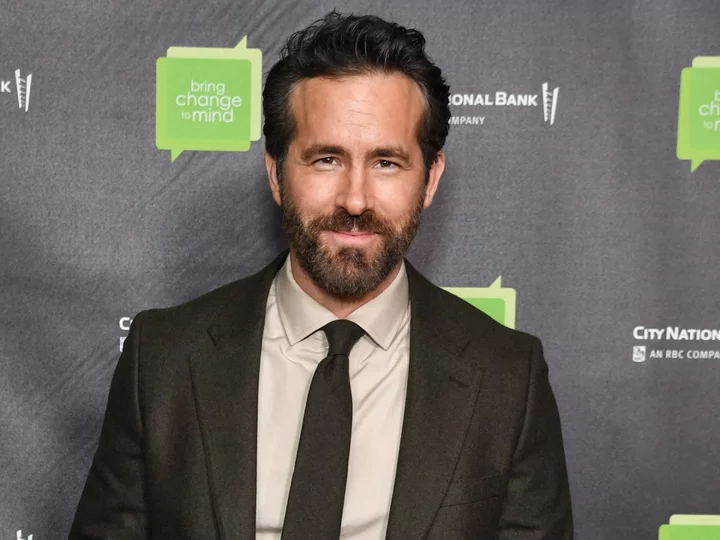
Ryan Reynolds opens up about how his mental health spins ‘out of control’
Ryan Reynolds has spoken candidly about his mental health, revealing that his mind can “spin out of control” sometimes. The actor, 46, spoke candidly about his mental health challenges during an interview with Page Six on 9 October, while attending non-profit organisation Bring Change to Mind’s annual Revels & Revelations Gala. Speaking to the outlet, he revealed that he’s found himself spinning “out of control” at times, before noting that he’s “not always great” at maintaining his mental equilibrium. However, Reynolds shared some routines that he follows when struggling with his mental health. “I certainly have my own little rituals and those kinds of things that help me stay grounded and keep my mind from spinning out of control,” he said. “Sometimes I’m really good at it, sometimes I’m not.” The Deadpool star noted that when he becomes aware of those “out of control” moments, he meditates in order to “take the time” for himself to regroup. He also shared how he’s become aware of his own lifestyle traits that he wants to work on amid his mental health struggles. “I tend to overbook myself when I’m spiraling that way,” he said. “I’m sort of aware of that stuff and I manage it as well as you can.” This isn’t the first time that Reynolds has spoken out about his mental health. He first opened up about his struggles with anxiety in February 2022 during an appearance on CBS’s Sunday Morning. “I’ve had anxiety my whole life really and you know, I feel like I have two parts of my personality. That one takes over when that happens,” he said. He also recalled how his feelings of anxiety would intensify before appearances on talk shows, such as Late Night With David Letterman. “I remember I’d be standing backstage before the curtain would open,” he said. “And I would think to myself: ‘I’m gonna die. I’m literally gonna die here. The curtain’s gonna open and I’m just gonna be a symphony of vomit.’ Just, like, something horrible’s gonna happen!” The Green Lantern star then noted that “as soon as that curtain opens” before he goes on stage, “this little guy takes over” that ultimately helps him manage his anxiety. “And he’s like: ‘I got this. You’re cool.’ I feel, like, my heart rate drop and my breathing calm, and I just sort of go out and I’m this different person. And I leave that interview going: ‘God, I’d love to be that guy!’” he said. During his appearance at Bring Change to Mind’s event on 11 October, Reynolds also discussed conversations that he and his wife, Blake Lively, have with their children about mental health. “I think it’s more about talking to them about everything,” he told People at the gala. “It’s genuine when I say I take a huge interest in their days and how things are going.” Reynolds and Lively, who’ve been married since 2012, share three daughters: James, eight, Inez, seven, and Betty, four. In February, they welcomed their fourth child, whose name hasn’t been publicly revealed. The Free Guy star also explained that the “best time” of his day is when he walks his children to and from school. When discussing some of the challenges that children often face, Reynolds praised his daughters for the self-awareness they’ve developed. “I think as parents, we are so much better equipped to handle the rigours of childhood through our kids now than when I was a kid. It’s just totally different now,” he said. “People are much more self-aware. And that’s the thing we sort of hang our hat on the most is self-awareness with our kids. Not be happy, not be anything, just be self-aware and welcome everything in.” Read More Ryan Reynolds describes experience attending Travis Kelce’s game with Taylor Swift From double dates to parenthood: A timeline of Blake Lively and Ryan Reynolds’ relationship NFL defends Taylor Swift coverage during games as Travis Kelce says they’re ‘overdoing it’ Ryan Reynolds describes experience attending Travis Kelce’s game with Taylor Swift Pokemon’s Detective Pikachu Returns and more top games of the week Travis Kelce reveals the two people who helped him woo Taylor Swift
2023-10-11 05:20
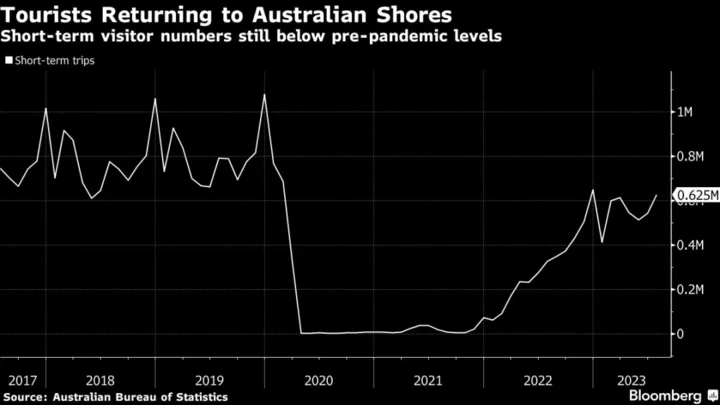
SXSW Sydney Festival Boosts Harbor City’s Post-Pandemic Revival
Nicole Kidman, Baz Luhrmann and Chance the Rapper will join business leaders from Canva, Atlassian and Tesla at
2023-10-11 04:27

Property, Consumer Stocks In Focus Ahead of New Zealand Election
When New Zealanders hit the polls on Saturday, investors will be focused on whether changes to consumer, construction
2023-10-11 04:23
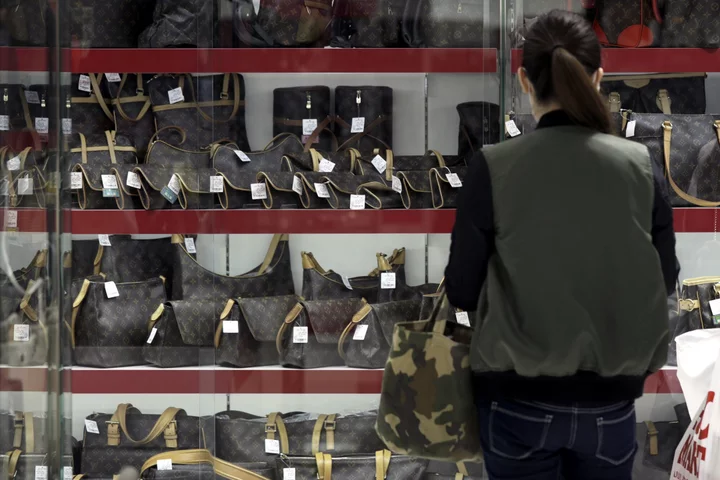
LVMH Sales Growth Slows as Global Luxury Demand Cools
LVMH’s sales growth softened in the third quarter as shoppers reined in spending on high-end Cognac and costly
2023-10-11 00:51
